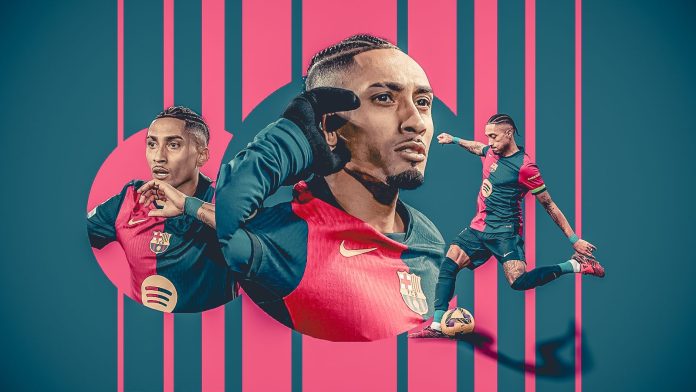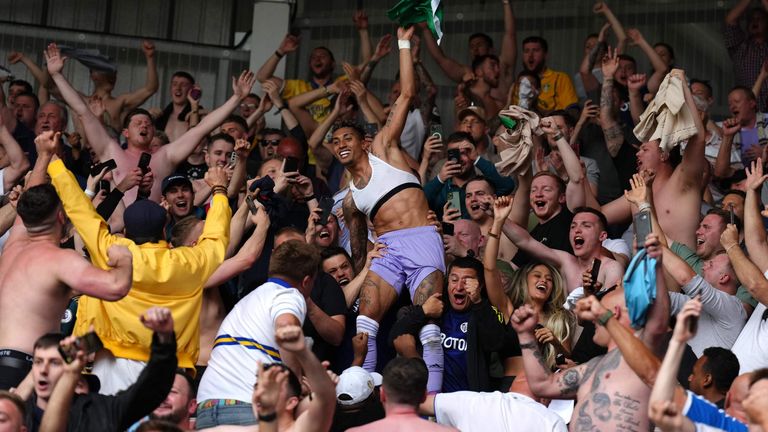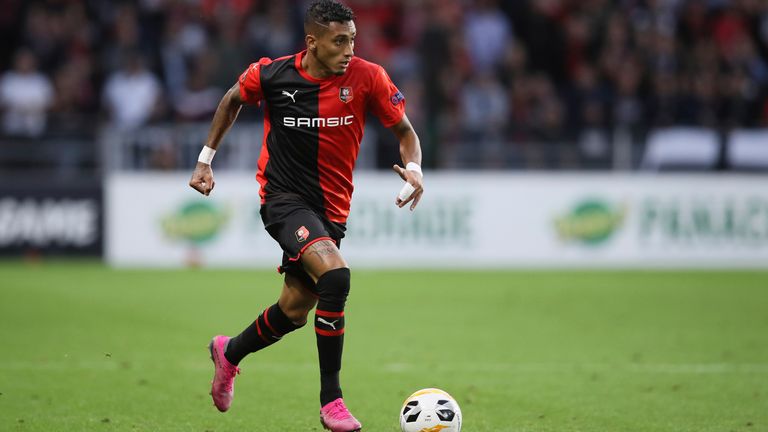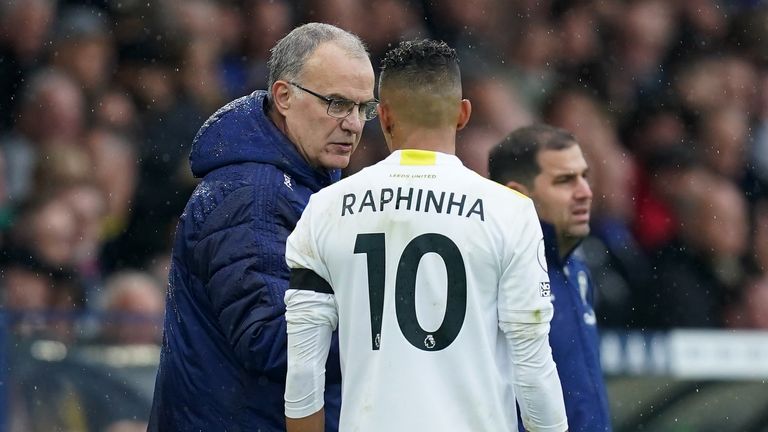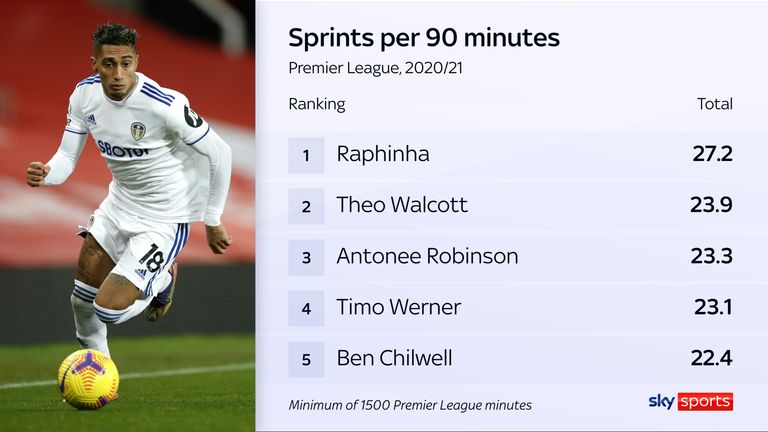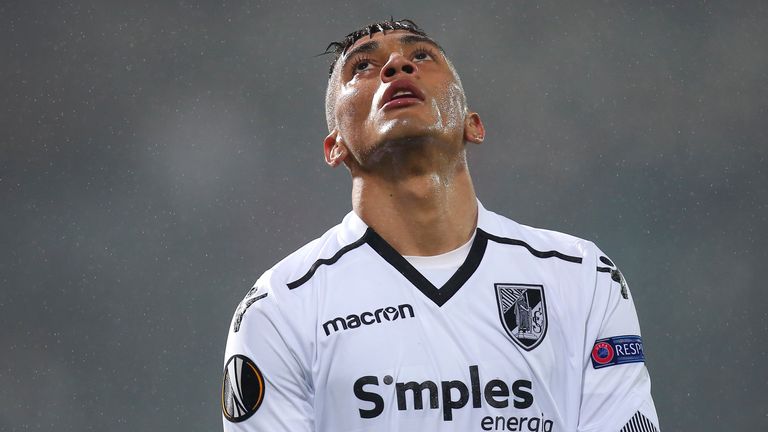With 28 goals in all competitions this season, his Barcelona team top of LaLiga, powering past Borussia Dortmund in the Champions League and with a Copa del Rey final to look forward to, Raphinha is eyeing a treble – and is the favourite for the Ballon d’Or.
His goal and two assists against Dortmund in the first leg of that quarter-final took Raphinha to 19 goal contributions in the competition in this campaign – matching Lionel’s Messi best effort. It is an astonishing transformation for the 28-year-old Brazilian.
After two relatively underwhelming seasons, he was linked with a move to Saudi Arabia. But something has clicked. With Robert Lewandowski creating space and Lamine Yamal picking him out, Raphinha has been the willing runner, finding joy from the left.
His Barcelona blossoming has been one of the stories of the season, all the more remarkable in this era of precocious talents who arrive on the scene seemingly fully formed. Peruse that list of Ballon d’Or candidates and most of the others were teenage sensations.
Raphinha’s own route to the top has been less linear. Consider, for example, that it was only three years ago that he was there celebrating with the Leeds supporters in the away end at Brentford having helped the club to escape relegation under Jesse Marsch.
The story of how he became a Premier League player is serendipitous in itself. In 2020, Marcelo Bielsa, the then Leeds boss, was not even scouting Raphinha when he was shown the video of a game between Nice and Rennes. He was looking for a new left-back.
“That was a little bit of a problem position for us,” Andres Clavijo tells Sky Sports. You may remember Clavijo as Bielsa’s translator but in truth his role was much broader than that, working as an analyst for the coach, with a particular specialism in French football.
“I did a video of Nice versus Rennes and Raphinha absolutely tore the Nice left-back to shreds. Marcelo saw it and said to me, ‘Who is this player?’ I said, ‘That is Raphinha, he has had an unbelievable season, helping Rennes to qualify for the Champions League.’
“I remember saying to him, ‘He is probably way out of our budget because I am sure they will not let him go for anything less than £30m after the season he has had.’ They had just bought him from Sporting the season before for around £20m.
“But I think Marcelo then contacted [director of football] Victor [Orta]. Victor reached out to Rennes and they said it was impossible but it came about in the last couple of days of the window. It was crazy that we pulled that off. We could not believe our luck.”
Raphinha was a revelation at Leeds, adapting quickly to life in the Premier League – and, crucially, life under Bielsa. “He is by far the best player that I have had the pleasure of being around. He is crazy talented but his work ethic is unbelievable,” says Clavijo.
“From the first day, he was just incredible in training. If you talk to any of the boys that were there at the time, they will tell you how good he was in training. He was just on a different level to everybody else. But the work rate is really what surprised everybody.
“His physical numbers were out of this world. It was just incredible.” Indeed, during his debut season as a Premier League player, his only full season under Bielsa, Raphinha made 715 sprints, the most by any winger that year, despite missing eight matches.
Factor in all positions and Raphinha made over 10 per cent more sprints than any other Premier League regular that season, one that was played without supporters inside the stadium. His motivation was intrinsic, albeit with a little encouragement from his coach.
“That is why he blended in so well with the way Marcelo wanted to play. If you look through Marcelo’s teams, if you don’t work then you are not really going to play. He had that work rate in abundance and also the ability that no other player on that team had.”
Clavijo describes it as “absolutely crazy” to think that he was working with a future Ballon d’Or candidate at newly-promoted Leeds, but maybe he should have checked in with Diogo Fernandes, the coach at Avai, the Brazilian club where Raphinha started out.
Speaking to Fernandes when Raphinha was still at Leeds, his prediction for the player’s rise now appears prophetic. “I always told people he was the best I had worked with. I said that he would go on to play for Barcelona or another of the top clubs in Europe.”
Fernandes tells some great tales of the young Raphinha. He would often catch the ball during training when a pass to him had been overhit. “In order to prevent it from running away too far and having to go and fetch it because our training ground was very open.”
Not a problem until he repeated it during a game against Inter in the Copa Rio Grande do Sul. Raphinha had already been booked. “He automatically just reached out with his hand to stop it. Of course, they gave him a second yellow card and he was sent off.”
Then, there was the time that he was incensed because a bookable offence had been committed not by him but by a team-mate and began remonstrating with the referee. A little awkward when his team-mate was already on a yellow card and he was not.
That might just resonate with Barcelona supporters who witnessed Raphinha lunge at the ball on the line to nick a goal from Pau Cubarsi in that 4-0 win over Borussia Dortmund in the Champions League quarter-final first leg. Let’s call it ruthless singlemindedness.
“He was extremely competitive, explosive even. He always wanted to be the best. He was destined to reach the highest echelons of football because of his qualities, his dribbling ability, his intelligence, and his finishing. He was almost complete.”

